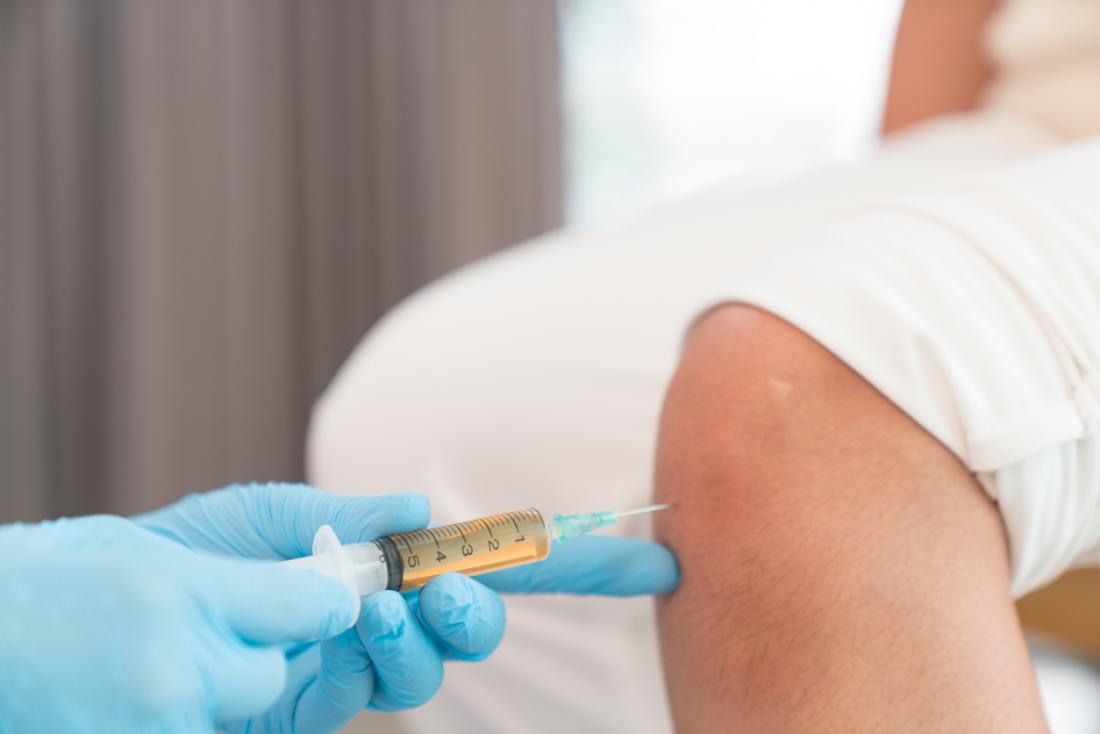Platelet Rich Plasma Injections
You may have already tried the standard treatments for osteoarthritis in your knee such as physical therapy, anti-inflammatories, surgery or cortisone injections. What you may not be aware of are (PRP) platelet-rich plasma injections. For the last ten years, research has

been conducted on using PRP to manage osteoarthritis of the knee. The platelets in your blood contain growth factors.
The theory is when PRP is injected into the injured area, the growth factors found in your blood will trigger the growth of new tissues. The idea is to decrease the inflammation found in your tissue. The interaction between your local cells and the growth factors signal your cells to begin cell migration and division. This is what promotes the formation of new tissue.
The Best Candidates for PRP Injections in Westchester
If you have not been able to effectively manage the osteoarthritis of your knee using the traditional methods such as physical therapy, cortisone injections and anti-inflammatories, you might be a good candidate for this treatment. The time may have come for you to consider finding PRP injections near you.
PRP injections are still classified as experimental but they are effective. What this really means is that your insurance may not pay for them. The research regarding the effectiveness and safety of the treatment is promising but limited. Prior to having any experimental treatment, it is a good idea to speak with our physician.
The Effectiveness of Westchester PRP Injections
Despite the fact that PRP injections are currently being used for the treatment of osteoarthritis of the knee, the evidence regarding the effectiveness of the treatment is conflicting. The meta-analysis conducted in 2017 was reviewed. This included 1,423 individuals participating in fourteen controlled, randomized trials.
The results showed PRP injections seemed to be effective for the management of the pain linked to osteoarthritis of the knee. When researchers compared PRP injections to placebos, the pain scores were significantly decreased. This included the results from the follow up conducted twelve months later.
Preparing for PRP Injections with a Chiropractor Westchester
Your first step is asking your chiropractor if there are any activities you need to avoid before you have your treatment. You will most likely be advised to:
• Have an MRI performed on your knee so the chiropractor can determine the specific damage.
• Stop using any anti-inflammatory medication seven days before your PRP injections in Westchester.
• Make arrangements for crutches for a couple of days after your PRP injection.
• Have a friend or family member drive you home.
You should also call your insurance company to find out if they will pay for any part of your expenses. Westchester PRP Injections may not be covered because the procedure is still considered experimental. You can speak with our chiropractor about setting up a payment plan if you do not have insurance or your insurance will not cover the expense.
Before and After Your Session at a Chiropractor Westchester
Your procedure will begin with a simple blood draw from your arm. Your blood is then placed in a centrifuge to spin for fifteen minutes. This separates your blood into red and white blood cells, platelets and plasma. This is where your PRP is extracted from. Your knee is numbed prior to your PRP injection. You will be discharged after resting for roughly fifteen minutes. The entire procedure requires about sixty minutes.
Once your treatment has been completed, you will need to ice your knee for twenty minutes every two to three hours. If you experience a lot of pain, you may require pain medication. Any physical activities placing weight on your knee will need to be avoided or limited.
To keep your weight off of your knee, our chiropractor may recommend using crutches for a couple of days. You should schedule an appointment with our chiropractor for six to eight weeks after your treatment. The effectiveness of your procedure and the next steps you should take will be discussed at this time.
The Potential Risks of PRP Injections Near You
The risk of complications is low because the procedure uses your blood. The rare risks include pain where you had your injection, local infection and nerve damage. Any nerve damage usually appears after you were given your injection. You should speak to our chiropractor about any symptoms of a complication and what you should do if these symptoms should develop.
The Bottom Line
PRP injections are a fairly low risk, low pain procedure using your blood for the stimulation of injured tissue growth. According to the latest evidence, PRP injections may be effective for managing the pain linked to osteoarthritis in the knee. More research is necessary to determine all of the potential benefits.
PRP injections can be used in conjunction with pain management to treat your osteoarthritis knee pain. The insurance coverage for this procedure does vary.